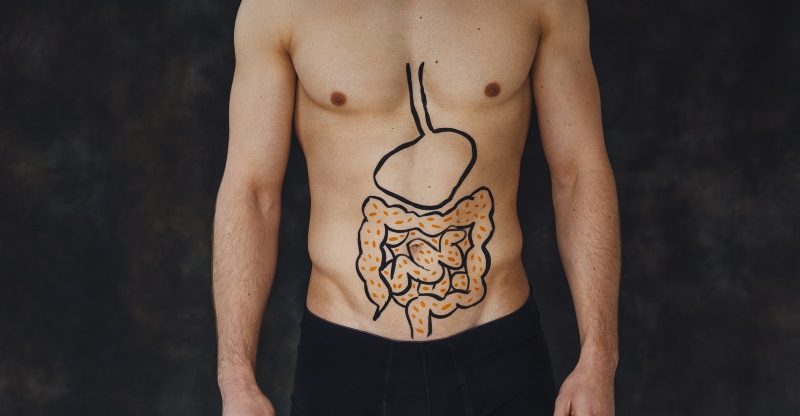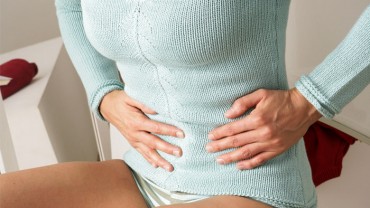7 Proven Mucoid Plaque Cleanse Strategies
When we strive to achieve health and wellness in our entire body, it is essential not to neglect parts just because they deal with some “icky” elements.
This is especially true for our colon health since most people don’t really want to think about their poop or how healthy that particular system is working.
However, a healthy colon is vital to a healthy body, and knowing how to avoid mucoid plaque and other colon problems, means you’ll stay ahead of any issues.
Most of us eat a diet that lacks enough fiber and nutrition to really keep our colons healthy.
Your colon may be lined with accumulated fecal material, as well as mucus, which could be preventing this vital organ from functioning properly.
There is some controversy about the mucoid plaque since some people are not sure it even exists.
We explain the theory behind mucoid plaque, as well as how you can safely and naturally eliminate this troublesome substance from your body.
We’ll also share helpful hints for keeping your colon healthy and functioning well at all times, including why this organ is so important to your health.
Understanding Mucoid Plaque
Your intestines are lined with a layer of mucus that keeps the contents of your digestive system moving smoothly along.
However, over time, that mucus can thicken, harden, and become rubbery as it accumulates fecal material, waste products, and even toxins.
This layer on your colon, or large intestine, is known as mucoid plaque.
Your body’s natural processes eliminate waste products through your colon.
That’s its job, and it does it pretty effectively.
If, however, you are not eliminating all the waste in your system and instead, are storing excess in your colon, this material becomes compacted, mingles with the mucus already in your digestive tract and forms an unhealthy layer known as mucoid plaque.
The Importance of Healthy Mucus
Mucus is a necessary component of your health.
It helps to protect you from germs, lubricates your organs, allows food to pass through your gut, and keeps viruses and other invaders from adversely affecting your health.
For example, the mucus in your nose, throat, and lungs protects you from colds and the flu, by lubricating your sinuses and airways.
This makes it easy for you to expel microbes that may enter.
The mucus in your colon plays a similar role.
When you eat foods that have many toxins or are highly acidic, your body produces mucus to protect your organs, while also helping to eliminate them from your body.
The mucus acts as a lubricant, moving wastes expediently along the digestive tract until they can be eliminated as feces.
If your diet is high in foods that contain harmful compounds or that routinely irritate the lining of your intestines, the layer of mucus in your gut can build up, becoming thicker.
If you eat highly acidic foods regularly, have too much-processed food in your diet, or consume foods that you are allergic to or intolerant of, that lining also continues to build.
Over-the-counter and prescription medications, heavy metals and microbes can all contribute to this mucoid plaque build-up.
Why Mucoid Plaque is Problematic
Although this layer is meant to protect your body, when it builds up like this over time, it can begin to cause problems.
Since your gut plays a significant role in your immune system health, keeping your digestive system healthy will also allow your immune system to keep the rest of your body healthy.
This is why mucoid plaque build-up can lead to increased colds or more frequent minor infections, inflammation that causes back pain or joint pain, skin conditions and even more severe allergy symptoms.
If you just aren’t feeling like yourself, your colon may need a little TLC.
A frequent symptom of mucoid plaque buildup is slow digestion.
If you are not eliminating wastes often from your body, they can become backed up.
This prevents you from fully absorbing the nutrients in your food.
More waste in your colon means a proliferation of bacteria and other microbes.
While you need some healthy microbes to support proper digestion, when these populations get out of control, it can create an environment perfect for breeding other diseases.
When unhealthy microbes outnumber the healthy ones in your gut, it often results in more serious medical problems, that are chronic and difficult to treat.
These include inflammatory bowel disease, ulcerative colitis, Crohn’s disease, and colon cancer.
Taking care of your colon can help prevent these diseases from occurring.
Is Mucoid Plaque Really a Problem?
Some experts question the theory of mucoid plaque and whether it actually exists.
When cleansing the colon, some believe that what passes from the body is merely the result of normal metabolic functions, plus whatever you used as a part of your cleanse or detox.
What is not in dispute, is that taking care of your colon, and eating to improve your colon health, is important.
Whether you think that a colon cleanse or detox is necessary, eating healthy foods that support your colon health is not in doubt.
Eating foods that support your colon health, as well as plenty of dietary fiber, which naturally keeps your colon free of food particles, will help keep this essential system functioning.
If you feel your colon behaving sluggishly and want to try to remove any possible mucoid plaque from your system, we can also help you there.
Naturally Removing Mucoid Plaque
If you want to remove any mucoid plaque that may have built up in your colon lining, you don’t need to reach for harsh treatments or medications.
Getting rid of mucoid plaque is simple, safe, and easy to do at home, using only natural ingredients and dietary and lifestyle changes.
These practices are not only great for removing mucoid plaque, but also for keeping your colon healthy all the time.
Change Your Diet
Making sure your diet is healthy and free of possible colon irritants, is the first step to removing any excess mucoid plaque.
What is the point in removing it, if you are just perpetuating the environment for it to return?
Start by cutting out all foods and substances that can cause gut irritation and contribute to plaque buildup.
From your diet, you should eliminate any foods to which you have an allergy or sensitivity.
While this may seem difficult, this will ultimately make you feel much better and contribute to your overall improved health.
Gluten and dairy are the most common food sensitivities.
You could also eliminate, as much as possible, your use of over-the-counter medicines, especially NSAIDs like aspirin.
They irritate your intestines, causing more mucus to be excreted.
You should also avoid alcohol and caffeine for these reasons.
Other unhealthy foods that are also not good for your colon health, include fatty meats, fried foods, foods containing refined sugars or grains, and many types of plant oils, including canola and sunflower oils.
Dropping these foods from your diet can decrease mucus production, which can make removing mucoid plaque easier.
Using Binders to Remove Plaque
After eliminating the contributing substances from your diet, you want to use binders to help expel your mucoid plaque buildup.
Binders attach to the food particles and waste materials in your intestines, carrying them through and out of your body.
Binders are often used in small doses when people feel constipated or have sluggish bowels.
They can also be effective at attaching to and eliminating any mucoid plaque you may have in your system.
A common binding agent used for intestinal health is psyllium husk powder.
This is often a major ingredient in natural laxatives and stool softeners.
It is a bulking agent, absorbing excess moisture and allowing waste to pass from your colon.
It can also attach to and absorb mucoid plaque.
Other effective and natural binders include green bentonite clay, coconut husk charcoal, modified citrus pectin, and bamboo charcoal.
For the best results, select several of these, as they bind naturally to different substances and work in different environments.
For best results, combine two or three of your favorite binders, along with psyllium husk powder.
This should be taken with a full glass of water first thing in the morning.
Avoid eating for at least one hour, before or after taking binders.
When using binders to eliminate mucoid buildup, you should drink plenty of water the day before, the day of, and the day following your treatment.
This will help you to avoid constipation, supply lubrication for the elimination process and allow for further detoxification of your system.
Other Helpful Tips
Most people benefit from a thorough colon cleanse twice per year.
After cleansing, it is important to eat a healthy diet and use preventative measures, if you want to support your colon health.
If you are feeling sick in any way, such as from a cold or other infection, you may want to wait before doing a colon cleanse.
If your immune system is impaired, it may have difficulty fighting off any microbes that are unleashed and flushed during this process.
Keeping Your Colon Healthy
If you have successfully eliminated mucoid buildup and want to keep your colon healthy, or if you are just looking to prevent digestive problems and disease, you can make several easy and natural changes that are good for your intestinal health.
Diet
The first is to eat plenty of dietary fiber every day.
You should aim for at least 40 grams of fiber as a part of your everyday diet, in both insoluble and soluble forms.
These increase the length of time it takes to empty your stomach and smooth the elimination of wastes from your intestines.
Eating whole, unprocessed foods, especially whole grains, fruits, and vegetables, is an excellent way to ensure you are getting enough fiber in your diet.
Whole grains, especially rolled oats, brown rice, barley, and quinoa provide you with excellent nutrition, as well as plenty of fiber.
Whole grains can also help improve your heart health.
Cut back on or entirely eliminate your consumption of processed meats, which substantially increase your risk for colorectal cancer.
You should also avoid processed foods, especially those that contain food additives, preservatives, and colorings.
Herbs
Several herbs can help improve your colon health and keep it working smoothly.
For example, marshmallow root can soothe the mucous membranes of the intestinal tract, as well as enhance toxin removal.
Peppermint soothes digestion, and slippery elm is known to lubricate the mucous membranes of the body, which can help you eliminate waste effectively.
Water
Drinking enough water is crucial for the health of your bowels and digestion.
You need at least eight glasses of water every day.
Starting your day with one or more glasses of water before eating in the morning, can keep your system moving all day long.
Water is vital for waste elimination, and without enough, you’ll experience constipation as well as other digestive problems.
Exercise
Moving your body also keeps your digestive system moving.
Regular exercise encourages the smooth muscles in your intestines to work more effectively.
Those who exercise are at a decreased risk for digestive disorders, as well as diseases like colon cancer.
The Importance of a Healthy Colon
As the last step in your digestive system, and the one that actually eliminates harmful and unwanted wastes from your body, your colon plays a key role in your overall health and well-being.
A healthy, functioning colon prevents problems from occurring in all other parts of your digestive tract, allows your body to remove harmful microbes that can otherwise make you terribly ill and ensures that you are able to successfully absorb all the nutrients you need from the foods you eat.
An unhealthy colon can become bloated and uncomfortable when it is not able to eliminate stored waste.
Fecal material can become impacted, serving as a breeding ground for other infections.
When water is not absorbed from the colon, you can develop diarrhea, which can cause serious health problems, if not addressed quickly.
Chronic irritation and stored material in the colon can lead to other problems, including polyps, colon cancer, and inflammatory bowel diseases.
Conclusion
Taking care of your colon is an essential part of supporting your overall health.
Eating a healthy diet is critical, as is drinking plenty of water.
Removing the buildup of mucoid plaque from your colon can help you feel better, improve your digestion and allow your body to absorb nutrients more readily.
A cleanse is a straightforward process that uses natural ingredients to gently scrub the excess mucus from your intestines.
FDA Compliance
The information on this website has not been evaluated by the Food & Drug Administration or any other medical body. We do not aim to diagnose, treat, cure or prevent any illness or disease. Information is shared for educational purposes only. You must consult your doctor before acting on any content on this website, especially if you are pregnant, nursing, taking medication, or have a medical condition.
HOW WOULD YOU RATE THIS ARTICLE?





